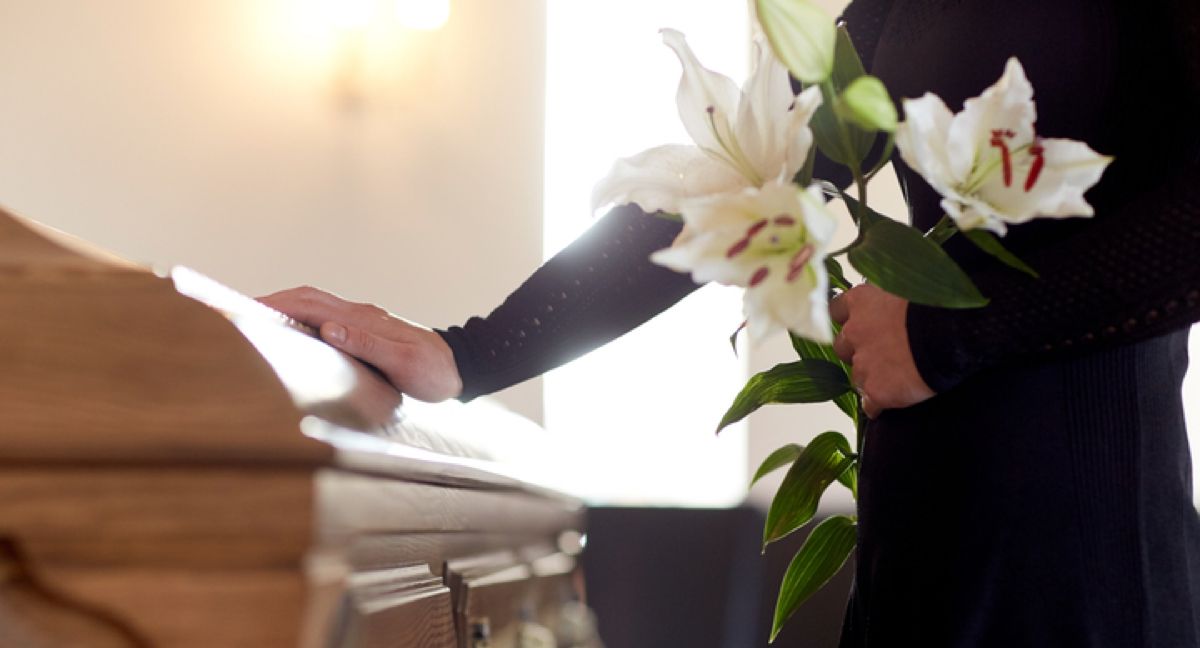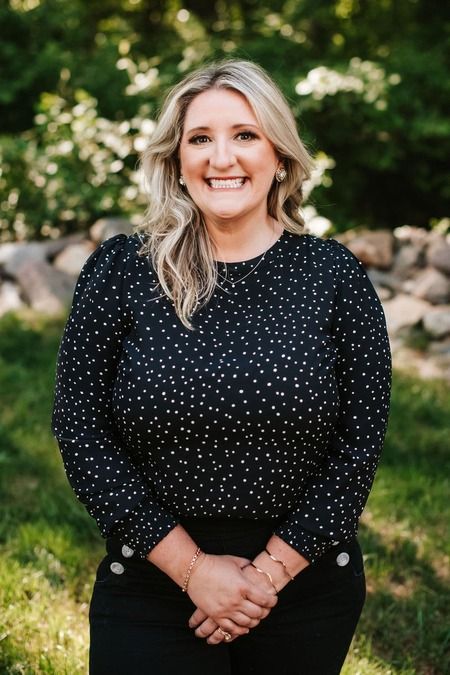Brooke graduated from the University of Richmond School of Law after receiving her undergraduate degree from the University of North Carolina at Chapel Hill. Brooke worked for five years in private practice with a law firm specializing in insurance defense litigation before becoming the trial litigator for Allstate Insurance Company in the metro Richmond area.
Losing a loved one is hard enough without feeling like someone’s to blame.
When you’re sure another person is at fault, it makes you want to do something.
You want to act—hold them responsible.
Sometimes you can. If there’s evidence the other person involved acted carelessly or malicious—or failed to act when they should have—the law might give your family a legal claim.
It’s best to talk with a Richmond wrongful death attorney about the possibilities.
Our team at River Run Law is ready to listen to your story.
Once we get to the heart of the matter, we can advise you and your family on what you could do next.
We make sure you’re informed so you can make the right decision for your family. Contact us today to get started.
Does Your Family Have a Valid Wrongful Death Claim?
The Virginia wrongful death statute dictates when surviving relatives have a legal claim.
Under the Code of Virginia § 8.01-50, if a person’s death is caused by another individual’s or business’s wrongful act, neglect, or default (failure to act), and if that incident would’ve given the person a legal claim had they lived, then the individual or business can be for liable damages.
A quick way to think about it is to ask yourself: Would my relative have had a personal injury claim if they lived?
If so, then your family may have a wrongful death claim.
Common Fatal Accidents That Bring Wronful Death
We often represent families after deadly:
- Car accidents,
- Motorcycle accidents,
- Truck accidents,
- Pedestrian accidents,
- Dangerous property accidents (premises liability), and
- Workplace accidents.
Whatever type of incident caused your loved one’s death, don’t hesitate to reach out.
We’re here to answer your questions about what to do next.
Difference Between a Survival Claim and a Wrongful Death Claim
It’s important to distinguish between a survival claim and a wrongful death claim. A survival claim is a legal claim your loved one had that survived their death.
If they didn’t pass away immediately, then they incurred damages that could be recovered in a personal injury claim.
Compensation in a survival claim is about what your relative suffered.
A wrongful death claim is about what you and your other relatives are suffering. It’s about your financial and emotional injuries.
Who Can File a Wrongful Death Lawsuit
We highly recommend you talk with a lawyer before pursuing a wrongful death claim. You have to follow the legal process correctly; otherwise, you’ll waste time and money.
Not just any family member can file this lawsuit.
The personal representative of the decedent’s estate has to do it on behalf of loved ones. If you lost your spouse, parent, or child, the personal representative might be you. Or the will or probate court might have named another relative or attorney the representative.
Because only one person can file the lawsuit, it’s important to talk with your relatives. You want to be on the same page about whether to move forward with a legal claim.
If you believe in filing a claim, but the personal representative refuses, give us a call to talk through your options.
How to File a Virginia Wrongful Death Lawsuit
It’s best to have a lawyer handle filing the lawsuit.
First, our team thoroughly investigates the fatal accident. If you have any hope of winning compensation, you need proof of the other party’s liability. Gathering and evaluating evidence is a crucial step.
When we’re ready to file, we’ll draft the complaint, which is the paperwork that states what your legal claim is, who it’s against, and your damages.
We’ll determine the right place to file a lawsuit, which may be the county where your loved one lived. You can’t file just anywhere. You have to bring a case in a court with jurisdiction over the matter.
The next step is serving any person or business we named as a defendant. They have to receive formal notice of the complaint. Then, they have a chance to respond. From there, your case moves forward in earnest.
What Happens After You File?
Each side gets to use discovery to learn more. Discovery is the process of exchanging information through several legal tools, like depositions, interrogatories (questions), admissions, and requests for the production of documents. Throughout this process, we continue to prepare for trial, whether or not we think a settlement is likely.
What to Expect from the Lawsuit
Code of Virginia § 8.01-52 says a jury or court can award damages that are fair and just and may include compensation for:
- Your sorrow and mental anguish over losing your loved one’s society, companionship, comfort, guidance, and advice;
- Compensation for the loss of the decedent’s income, services, protection, care, and assistance;
- Medical expenses for the injuries that led to the decedent’s death;
- Reasonable funeral expenses; and
- Punitive damages if the at-fault party is guilty of willful or wanton conduct or recklessness that displays a conscious disregard for the safety of others.
The compensation you receive under three and four are apportioned among the creditors who provided medical, burial, and funeral services or those who paid the expenses on the deceased person’s behalf.
It doesn’t get spread out between the surviving family members.
Who Receives Compensation
Virginia’s wrongful death law defines who gets compensation from a settlement or court award.
The damages are usually distributed among the surviving spouse, children, and grandchildren from any deceased child.
But it gets a bit more complicated. Parents may receive a part of the award if, during the previous 12 months, the decedent provided them with financial support or services for necessities.
If there are no spouses, children, or grandchildren, then the compensation is awarded to the parents and siblings or any other relative dependent on the decedent.
If the decedent left behind a spouse and parent(s), but no children or grandchildren, then the spouse and parent(s) divide the award.
If your lawsuit goes to trial and a jury decides, it also specifies beneficiaries and distribution of the damages.
But first, funds go to the personal representative responsible for paying court costs, attorney fees, and certain creditors. Then the remainder is distributed to you and your other relatives.
The law also allows the personal representative to negotiate a settlement with an insurance provider. But they can’t do it without court approval. If you disagree with a settlement or the distribution of the award, you’ll have the right to speak up.
How to Win a Wrongful Death Claim
Recovering compensation through a wrongful death lawsuit comes down to whether you can prove negligence, recklessness, or intentional misconduct.
That requires having plenty of evidence, which we acquire during our initial investigation and discovery.
Evidence can include objects, photos, video, eyewitness statements, documents, police accident reports, medical records, coroner’s reports, and expert opinions.
We use the strongest direct and circumstantial evidence to build the case.
Proving Negligence
In most wrongful death cases, your goal is to show the other party was negligent, which requires establishing four key elements:
- The other party owed your relative a duty of care (a certain standard of behavior);
- The other party failed to uphold their duty of care;
- The breach of duty was the direct and proximate cause of your loved one’s death; and
- You have suffered damages as a result.
Having the burden of proof can be intimidating, but it doesn’t have to be.
River Run Law has years of experience proving negligence in personal injury and wrongful death claims. We know how to use the evidence to our advantage.
Call a Richmond Wrongful Death Lawyer for Help
The experienced Virginia wrongful death lawyers at River Run Law can explain the particulars of filing and winning a wrongful death lawsuit further during a free consultation.
Please don’t hesitate to reach out through our online form or call (804) 889-0500.



